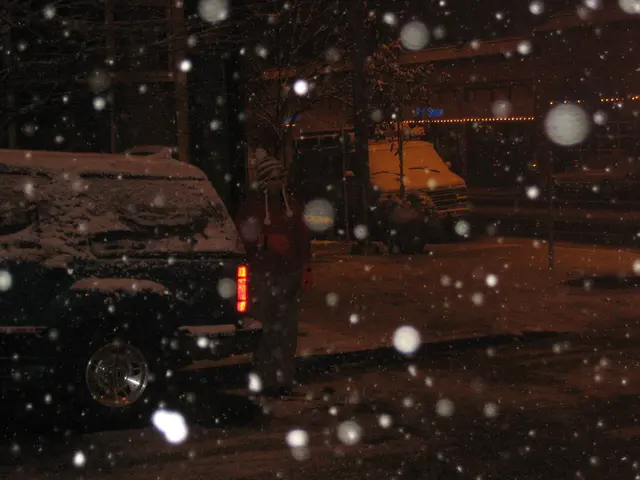Federal Authorities opt against enforcing a national emergency status in response to unusual border crossings.
Facebook Twitter Whatsapp E-Mail Print Copy Link The latest buzz surrounding Germany's migrant policy has left many scratching their heads. Chancellor Friedrich Merz, during his visit to Brussels, addressed some confusion and clarified that the federal government has not explicitly declared an emergency to limit irregular migration. Despite some misunderstandings, the government aims to enforce stricter border controls and rejections in the future.
Federal Interior Minister Alexander Dobrindt (CSU) was among the first to announce increased border controls on May 8th, 2025, to curb refugee numbers. Reportedly, this measure will involve deploying more federal police at the borders and potentially turning back asylum seekers.
In the wake of Dobrindt's announcement, questions arose about the legality of these changes. Some argued that Article 72 of the Treaty on the Functioning of the EU could serve as a legal basis for deviations from EU law for the sake of public order and internal security. However, the government spokesman, Stefan Kornelius, later clarified that no "state of emergency" had been declared.
Now, let's cut through the confusion. Article 72 allows member states to suspend certain EU legal obligations for exceptional situations that pose a serious threat to public order or internal security. If enacted, Article 72 could enable Germany to tighten border controls and potentially turn away asylum seekers from safe EU countries with some exceptions for vulnerable individuals, such as pregnant women.
It's crucial to note that while the German government is strengthening border controls and imposing rejections, they stopped short of outright closing the borders. Their approach focuses on enforcing stricter migration rules and incrementally increasing border controls to limit irregular migration.
As of now, the official stance on declaring an emergency remains unclear. Nevertheless, it's certain that changes are afoot when it comes to Germany's migrant policy. Stay tuned for updates as the situation develops.
H/T: ntv.de, AFP
Insight: Despite some ambiguity over declaring a national emergency, the German government has been taking action to tighten border controls and limit irregular migration. The government is using Article 72 of the Treaty on the Functioning of the EU as a potential legal basis for enforcing stricter border controls, including turning away asylum seekers if necessary.
- The German government's employment policy seems to focus on enforcing stricter border controls, as announced by Federal Interior Minister Alexander Dobrindt, to limit irregular migration.
- Chancellor Friedrich Merz, during his visit to Brussels, addressed confusion over Germany's migration policy and clarified that no state of emergency had been declared, yet they are exploring the use of Article 72 of the Treaty on the Functioning of the EU to tighten border controls.
- Some critics question the legality of the changes in Germany's migration policy, arguing that Article 72 can serve as a basis for deviations from EU law for public order and internal security.
- While the official stance on declaring a national emergency remains unclear, the government continues to take action to limit irregular migration, following the announcement made on Whatsapp, Facebook, Twitter, and other general-news platforms regarding increased border controls.








